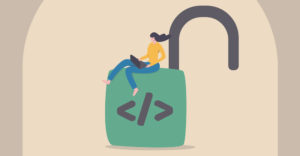
A legal test used to assess the validity of patents threatens the development of free and open source software, according to a civil liberties group.
The test can be used to create legal obstacles to free and open source (FOSS) collaborations, according to a friends of the court brief filed Wednesday by the Electronic Frontier Foundation (EFF). The case, KSR International v. Teleflex, et. al., is expected to be heard during the next term of the U.S. Supreme Court.
“Because these collaborations are forged primarily through community rather than capital investment, many FOSS projects lack the funding to pay patent counsel, much less afford litigation,” the EFF brief said. “Thus, the normal costs of doing business in the patent-laden world of information technology — opinion letters, litigation, etc. — are exponentially detrimental for FOSS.”
Ordinary Combination
The legal benchmark — called the teaching-suggestion-motivation test — has been used by federal courts for more than a decade, but it’s never been reviewed by the nation’s highest court until now, according to EFF Staff Attorney Corynne McSherry.
“The Supreme Court has decided at long last to review this test, and we’re very happy about that,” she told LinuxInsider.
The court test is used to determine the validity of a patent that combines existing inventions into a putative new one.
The U.S. Justice department and U.S. Patent Office also filed an amicus brief in the case, stating that under the test, “a claimed invention that combined elements already present in the prior art would not have been obvious at the time of invention unless there was a teaching, suggestion, or motivation in the prior art that would have led a person of ordinary skill to combine the prior art references in the manner claimed.”
Rigid Application
What makes the test especially burdensome, McSherry argues, is the way it has been applied by the courts.
“You can’t simply have an expert come in and testify something is obvious to everybody,” she explained. “What you need to do is find some document — some kind of piece of paper where someone actually makes the suggestion to combine two technologies.
“That’s too narrow,” she contended. “You should be able to talk to people having ordinary skill in the art and ask them what they think about it. You shouldn’t have to go searching through reams of paper and hope that you’ll find some piece of paper somewhere where someone states the obvious.”
Harms Innovation
By protecting patents on obvious combinations of things, the test is hampering innovation, maintain the Justice department and Patent Office in their brief.
“The issue is important,” it states, “because many patent applications rest on the combination of prior art references, and because extension of patent rights to obvious combinations of familiar elements retards, rather than advances, new discoveries.
“As this case illustrates, the test renders patent examination and litigation more costly,” the government argues. “It grants patent applicants unjustified rewards for disclosing non-innovative subject matter, and it forecloses competitors from using the public storehouse of knowledge that should be freely available to all.”
Switching Burdens
Before the creation of the suggestion test, a patent applicant had to demonstrate entitlement to a patent, explained James W. Dabney, of Fried, Frank, Harris, Shriver & Jacobson in New York, which represents KSR International in the case.
“The federal circuit takes the view that a person who walks into the patent office with a patent application doesn’t have to show anything,” he told LinuxInsider. “They take the view that you are automatically entitled to a patent unless the Patent Office can find this very specific kind of evidence that shows that you’re not an inventor.
“That shifts the burden from the person seeking a patent to the Patent Office and anybody else who would oppose the issuance of the patent,” he added. “It distorts the patenting process in fundamental ways.
“What could be more predictable from such a regime,” Dabney wondered, “than a flood of patents on things that may differ from pre-existing knowledge and technology in almost the most trivial of respects?”
The Supreme Court is expected to hear oral arguments on the KSR case in the fall.



















































